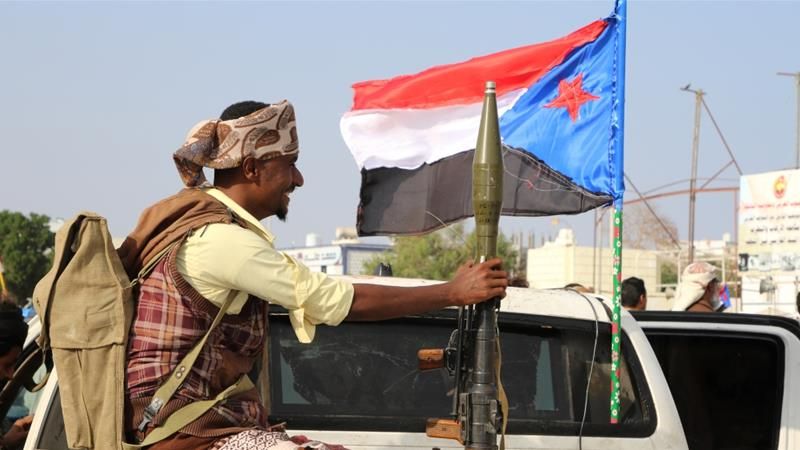
Local Editor
Doctors Without Borders says it's been "absolutely chaotic" at its hospital in the Yemeni city of Aden, where infighting between two former allies has been raging for weeks.
Two factions that had been fighting together against the Houthi Ansarullah movement — forces loyal to Abd Rabbu Mansour Hadi and the separatist Southern Transitional Council (STC) — are now fighting each other in the war-torn country's interim capital.
"There has been a lot of bombings, shelling, Kalashnikov fire exchange all around the hospital," Caroline Seguin, program manager for Doctors Without Borders in Yemen, told As It Happens guest host Helen Mann.
"In this kind of chaos situation, we never know what can happen. There was many groups that are not under control at all and they all have guns."
The hospital — the only one in the region that provides free health care to all parties — took in 51 patients in the span of 12 hours on Wednesday, including 10 who were dead on arrival.
Some were fighters from the various factions, Seguin said, but the majority were civilians, including some children.
The outbreak of hostilities between the two sides is the latest twist in a complex and multi-faceted war in Yemen.
The central conflict in Yemen revolves around the Houthis fighting the resigned regime of former Yemeni President Abd-Rabbu Mansour Hadi.
Haid's regime forces are backed by a Western-armed, Sunni Muslim coalition, led by Saudi Arabia. That coalition includes the separatist STC, backed by the United Arab Emirates.
But the UAE has fallen out with Hadi and withdrawn many of its ground forces in Yemen, prompting the STC to try to gain control of Aden.
The separatists aim ultimately to restore the South Yemen republic which merged with the north in 1990. They had clashed occasionally with government forces for several years before major new hostilities erupted this month.
Airstrikes hit Hadi loyalists heading to the southern port city on Thursday, killing at least 30 troops, a regime commander said.
It was not immediately clear who was behind the airstrikes but the Hadi regime has blamed the UAE.
Officials in the UAE declined to immediately comment.
Those airstrikes were just 300 meters away from the Doctors Without Borders hospital, Seguin said.
"[Staff] were stuck inside the hospital because all around the hospital was very so chaotic and very dangerous for them to reach their homes. So they were separated from their families while they were managing these casualties," she said.
"Everybody worked like crazy without complaint, but when I spoke one by one with my colleagues, they were very worried for their families that were alone at home."
But even if they could leave the hospital, it wasn't necessarily safe to go home.
"Some of my colleagues were obliged as well to leave their homes and asking their families to leave because they were in the middle of the shelling and all that and it was too dangerous for them to stay," Seguin said.
The UN Security Council expressed concern over the escalation in violence and called on all parties to show restraint and to preserve Yemen's territorial integrity.
Saudi Arabia has called for a summit to end the standoff, which has thwarted UN efforts to end a war that has driven Yemen to the brink of famine and is widely seen as a proxy struggle between Iran and Saudi Arabia for regional dominance.
Hadi's resigned regime has said it will not participate until separatists cede control of sites they seized earlier in August.
Source: News Agencies, Edited by Website Team